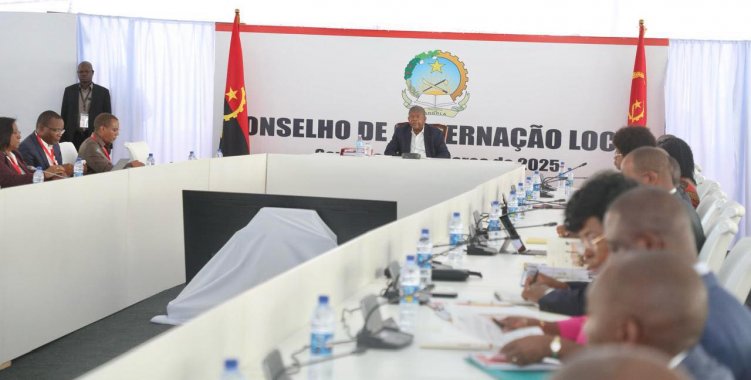According to a statement from the Presidency of the Republic, to which VerAngola had access, the meeting served to assess several documents, with emphasis on the "presentation of data on the progress of the implementation of the new political-administrative division, adopted to adapt the organisation of the territory to the demands of demographic growth, as well as to promote its harmonious development, bringing public services closer to the population and reducing regional asymmetries".
In this sense, a set of diplomas were approved, with a view to "materialising the tasks foreseen in the Action Plan for the Implementation of the new political-administrative division, with emphasis on the new organic statutes of the provincial governments of Cuando, Cubango, Icolo and Bengo, Moxico, Moxico Leste, Luanda and the municipal administrations, in accordance with the new classification".
With regard to essential infrastructure and territorial organisation, the statement adds that "preliminary studies were carried out and areas were identified for the construction of the future cities of Mavinga (province of Cuando) and Cazombo (province of Moxico Leste)", and in this area, the Urban Plan for the Airport City of Icolo and Bengo was approved by the Council of Ministers.
According to a note from CIPRA, to which VerAngola had access, as part of the "improvement of human capital skills and consolidation of the administrative reorganisation process, training sessions were held on Introduction to Public Service for Local State Administration Bodies and Introduction to Local Finances", aimed at municipal administrators and deputies for the economic and financial areas, secretaries-general, among other local staff.
"Following this measure, the Introduction to Territorial Planning and Local Urban Development course has been running since Monday, aimed at deputy municipal administrators for the Technical Area, Infrastructure and Community Services", the note states, which also says that "other training actions for deputy municipal administrators for the Political, Social and Community Areas" are expected to be carried out in the near future.
In the budgetary field, for this year's financial year, "the resources necessary to cover personnel expenses, current and capital expenses, for the three new provinces and their municipalities" were guaranteed.
At the meeting, the council also assessed the Dirt Roads Programme for the Flow of Production.
"The Local Government Council assessed the Dirt Roads Programme for the Flow of National Production, a document that presents a set of actions to be developed for the construction and rehabilitation of these strategically important access routes", reads a statement from CIPRA.
This measure aims to "contribute to the flow of national production, particularly in the agricultural, industrial, mining and tourism sectors, taking into account the level of intervention to be carried out on the selected routes, as well as the estimated costs for implementing the aforementioned programme".
Therefore, the Government "in the first phase recommends intervention on 3344 kilometres, in the 21 provinces of the country".
Among the various topics discussed at the meeting, the National Strategy for Food and Nutrition Security 2025-2034 (ENSAN II) also stands out. This is a document that includes measures that aim to guarantee the "right to adequate and affordable food for all citizens, through an integrated and sustainable approach, with the participation of civil society, and a focus on the progressive increase in the areas of small and large farmers".
Also considered was "a proposal to restructure the Informal Economy Reconversion Programme (PREI), designed as a structuring public policy to facilitate the transition of informal operators to the formal economy, promoting legal certainty, access to financing and inclusion in social protection systems", the note also states.







